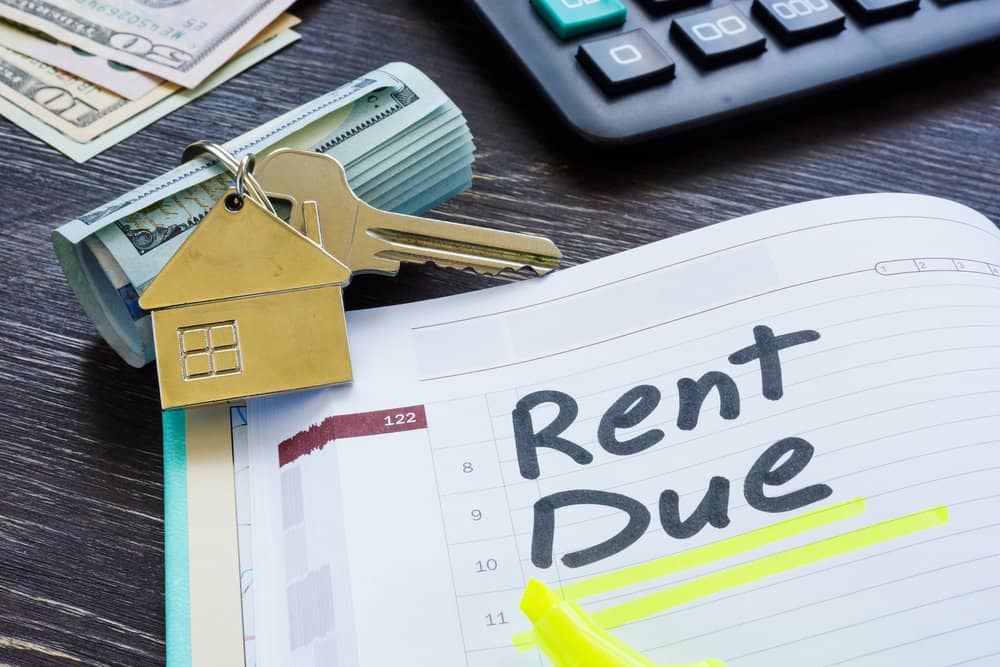Dealing with a landlord taking you to court for unpaid rent can be stressful and unsettling. As a tenant, understanding your rights and knowing what to expect can make a significant difference in navigating the legal process. This article will explore why a landlord might sue for unpaid rent, what to expect in court, and how to prepare your defense strategy.
It’s essential to recognize that unpaid rent is not the only reason a landlord may take a tenant to court. Sometimes, other reasons, such as property damage or an illegal move-out, could lead to a lawsuit. Regardless of the reason, it’s crucial to familiarize yourself with the legal aspects of landlord-tenant relationships to protect your rights and interests better.
Going to court might be intimidating, but having a solid understanding of the steps taken by landlords for unpaid rent and knowing the potential financial implications can ease your anxieties. By adequately preparing yourself for court proceedings, you can favorably increase the likelihood of resolving the issue.
Key Takeaways
- Understand the reasons why a landlord may sue for unpaid rent and familiarize yourself with landlord-tenant legal aspects
- Know what to expect in court and the potential financial implications of unpaid rent lawsuits
- Develop a solid defense strategy to protect your rights and interests during court proceedings
Understanding Your Situation

Unpaid Rent Issues
Sometimes, life throws unexpected obstacles your way, and you might find yourself unable to pay the rent on time. Common reasons for unpaid rent include job loss, reduced income, unexpected expenses like medical bills or car repairs, or financial irresponsibility1.
If you’re facing unpaid rent issues, it’s crucial to communicate with your landlord as soon as possible. Explain your situation and try to work out a payment plan or a temporary agreement. Remember that your landlord has the right to take legal action for any unpaid rent, so it’s essential to resolve the issue promptly.
Key Takeaway: Reach out to your landlord, discuss your financial problems, and try to negotiate a payment plan.
Understanding Eviction Laws
Eviction laws vary by state, but a landlord must follow specific procedures before evicting a tenant for unpaid rent. First, they must provide you with a written notice. This notice usually gives you a certain number of days to pay the rent or move out. If you don’t comply, your landlord may file a lawsuit against you.
In eviction court, a judge will review the case, and if you have a valid defense, you might be able to avoid eviction. However, if the judge rules in favor of the landlord, you could face eviction and possibly be ordered to pay back the unpaid rent plus any legal fees associated with the case.
Remember that a lawyer representing your landlord or property manager in eviction court must follow the Fair Debt Collection Practices Act (FDCPA) and avoid using false or misleading statements to collect rent.
Key Takeaway: Familiarize yourself with eviction laws specific to your state and know your rights.
Legal Aspects of Landlord-Tenant Relationships

Navigating the legal landscape of landlord-tenant relationships can be complex. However, understanding the basics can help both parties operate within their rights and responsibilities, ensuring a respectful and fair relationship.
Rental Agreement Essentials
A rental agreement is a crucial document that both the landlord and tenant need to adhere to. It typically covers:
- Lease term: specifying the length of the lease (e.g., one year).
- Rent amount and payment schedule: stating how much and how frequently rent should be paid.
- Security deposit details: explaining the amount the tenant must pay and the conditions for its return.
- Maintenance responsibilities: clarifying who is accountable for repairs or other property upkeep.
Remember that a rental agreement can be written or oral, but a written lease can provide more explicit documentation if disputes arise.
Rights and Responsibilities
Both landlords and tenants have certain rights and responsibilities, which may vary slightly by state:
Landlord’s rights:
- Receive rent payments on time
- Enter the property in reasonable circumstances (with proper notice)
- Evict tenants if they breach the lease terms
Tenant’s rights:
- A habitable premises: the property should be safe and well-maintained
- Due process before eviction: a tenant must receive adequate notice and have the opportunity to address issues before eviction can occur
- A fair return of the security deposit upon lease termination provided the property is left in good condition
Landlord’s responsibilities:
- Provide a habitable property: maintain the property in a safe and functional condition
- Respect the tenant’s privacy: enter the property only with proper notice and for justified reasons
- Address necessary repairs and maintenance promptly
Tenant’s responsibilities:
- Uphold the terms of the rental agreement
- Pay rent on time and in full
- Report any issues or damage to the landlord promptly
Understanding and respecting these rights and responsibilities can help ensure a healthy landlord-tenant relationship and minimize conflicts.
Steps Taken by Landlord for Unpaid Rent
A landlord may take legal action against the tenant when dealing with unpaid rent. The process involves several steps, including initiating legal proceedings and sending proper notices and court papers.
Initiation of Legal Process
Knowing that your landlord can sue you if you fail to pay rent is essential as a tenant. They can start legal proceedings against you to recover the unpaid rent and possibly terminate your tenancy. Here’s a brief overview of the process:
- Identifying the issue: The landlord will verify that you missed rent payments and determine the due amount.
- Documenting the situation: Your landlord may record missed rent payments, late notices, and other relevant information.
Notice, Summons and Court Papers
- Notices: The landlord will send you a written notice, typically called a “Notice to Pay Rent or Quit.” This document notifies you of the rent you owe and usually grants you a specific period (often 3 to 5 days) to pay or leave the property.
- Summons: If you don’t pay or vacate within the specified period, the landlord will proceed with the legal process. They will file a lawsuit against you, and the court will issue a summons. You will receive this summons, which officially informs you of the legal action being taken against you.
- Court Papers: In addition to the summons, you will receive court papers outlining the case details, such as the reason for the lawsuit and the landlord’s demands. These documents may include the complaint or petition, which outlines the landlord’s claims, and any supporting documents like the lease agreement and records of past rent payments.
Knowing the steps a landlord takes when dealing with unpaid rent is vital as a tenant. Understanding the legal process will help you respond promptly and appropriately, even in challenging situations.
What to Expect in Court
Interaction with the Judge
When you find yourself in court for unpaid rent, it’s essential to maintain a respectful and professional demeanor when interacting with the judge. They will be the one who ultimately decides in your case. Address the judge as “Your Honor” and always stand when they enter or exit the room. Be sure to listen carefully to their instructions and respond when necessary.
Being concise and straightforward with your explanations is crucial, as judges appreciate clarity and honesty. They may ask you questions about your situation, so be prepared to provide accurate and relevant information about the unpaid rent and any other related issues. Remember that the judge is there to make a fair and unbiased decision, and your cooperation and respectful behavior will help maintain a proper environment for the proceedings.
Evaluation of Evidence
During the court proceedings, you and your landlord can present your case and any evidence supporting your claims. The judge will be responsible for evaluating the presented evidence before deciding.
Be sure to gather and organize any documents or information that can help defend your case, such as proof of payment, written agreements, or records of communication with your landlord. Presenting solid, relevant evidence will bolster your position in the eyes of the judge, increasing your chances of a favorable outcome.
Here are some valuable tips for handling evidence in court:
- Carefully review your records before the court date, ensuring you know the relevant details.
- Make copies of relevant documents to present them during the process quickly.
- Arrange your evidence chronologically or by topic, ensuring it’s accessible during the hearing.
It’s important to remember that the judge will be examining both sides of the case, so being adequately prepared with your evidence will give you the best chance of success.
Rent Collection Methods After Judgment
After receiving a judgment from the court for unpaid rent, a few methods are available to help collect the owed amount. In this section, we’ll explain the role of a collection agency and the lien process in collecting back rent.
Understanding Collection Agency Role
A collection agency can significantly help in recovering unpaid rent after a judgment. If the court rules in the landlord’s favor, they might decide to involve a collection agency to handle the rent collection process. The collection agency will typically:
- Contact the tenant using letters, emails, and phone calls to demand payment
- Report the tenant’s unpaid debt to credit bureaus, ultimately affecting their credit score
- Offer to negotiate payment plans, or even settlements, to clear the debt
Note: Utilizing a collection agency may involve fees, but often, it can be more efficient and effective than attempting to collect the rent independently.
The Lien Process
Another option for collecting back rent after a judgment is obtaining a lien on the tenant’s property. To satisfy the debt, a lien gives the landlord a legal claim to the tenant’s assets, like their bank accounts or personal property. There are different types of liens, but the most common ones are:
- Bank account garnishment: The court might authorize the landlord to freeze and seize money from the tenant’s bank account(s) until the debt is paid.
- Wage garnishment: In some cases, the court will authorize a portion of the tenant’s wages to be withheld and paid directly to the landlord until the debt is satisfied.
- Property lien: The landlord could be granted a lien on the tenant’s personal property or even real estate. This would restrict the tenant from selling or refinancing those assets until the debt is settled.
Please remember that the lien process often requires multiple steps, including filing legal documents, and may not guarantee that you’ll collect the entire unpaid rent. However, it is a vital method to enforce the court’s judgment against the tenant.
Your Defense Strategy

Developing an effective defense strategy is essential if your landlord is taking you to court for unpaid rent. This section will provide valuable information on preparing your defense with the help of an attorney and exploring mediation and settlement options.
Role of an Attorney
Consulting with an attorney can make a significant difference in your defense strategy. They will help you understand your legal rights, gather essential documentation, and present your case in court. Some common defenses include:
- Rent was already paid for the disputed period
- The landlord failed to maintain a habitable living environment
- You did not receive proper legal notice
- The landlord’s actions were retaliatory or discriminatory
A legal aid attorney might be available if you can’t afford a lawyer. They will assist in asserting your rights and presenting your case in court. Remember, a strong defense involves understanding local laws and policies; an experienced attorney can offer invaluable guidance.
Mediation and Settlement Options
After consulting with your attorney, consider exploring alternative dispute resolution methods, such as mediation. Mediation is a voluntary process that can prevent the need to go to court. A third-party mediator, usually experienced in landlord-tenant disputes, can help both parties negotiate a resolution that works for everyone.
In some cases, your landlord might be open to discussing a settlement. A settlement agreement can help you avoid a court hearing and further legal fees. This agreement typically includes negotiating rent payment plans, reduced rent in return for performing maintenance tasks, or even moving out under specific conditions.
Taking an active role in your defense by seeking legal advice, involving an attorney, and exploring mediation and settlement can increase the chances of a favorable outcome for your landlord-tenant dispute. Stay informed, proactive, and open to negotiation, and keep a level head throughout the process.
Potential Financial Implications
Understanding Court Costs, Late Fees, and Damages
Several financial implications must be considered when your landlord takes you to court for unpaid rent. You will likely be responsible for court costs, which include filing fees, document preparation, and service charges. Additionally, your landlord may seek late fees incurred due to your delayed rent payments and damages for any losses they suffered, such as the cost of finding a new tenant. To better handle these financial aspects:
- Review your lease agreement for terms related to late fees and damages
- Seek legal advice to help navigate court and procedural requirements
- Track all correspondence and evidence related to rent payments to present in court
Remember that being aware of these potential costs can help you better prepare for the legal process and determine whether or not to negotiate a settlement with your landlord before the case goes to court.
Impact on Housing Costs
Facing a court case for unpaid rent can also affect your current and future housing costs. If the court finds you responsible for unpaid rent or damages, you may end up with a judgment against you. A judgment:
- May be subject to interest, making your debt grow over time
- Can lead to wage garnishment or asset seizures, which would further impact your budget
- Negatively affects your credit score, making it harder to get new housing or obtain loans in the future
To mitigate the impact on your housing costs:
- Consider negotiating a payment plan with your landlord before going to court
- Seek financial counseling to help you budget and find resources to cover these costs
- Explore available assistance programs for renters facing legal disputes or financial hardships
Being proactive in addressing the financial implications of unpaid rent and a court case can save you money, protect your credit, and maintain your housing stability.
Next Steps After Court Proceedings
Recovery Process
Once the court proceedings for unpaid rent have concluded, it’s essential to understand the recovery process. As a renter, you should know that your landlord may be awarded a judgment to recover the unpaid rent and any additional costs, such as filing or legal fees.
If you lose the case and the court rules in favor of your landlord, it’s essential to devise a plan to fulfill your obligations. Here are some steps you can take:
- Negotiate a payment plan: Talk to your landlord and try to agree on a payment plan that works for both parties. This can help ease the financial burden and improve your relationship with the landlord.
- Prioritize your debts: Focus on settling high-priority debts, such as security deposits or rent arrears.
- Seek financial assistance: Various government programs and nonprofit organizations provide rental assistance or grants to help you with rent arrears.
Understanding Legal Requirements
After the court rules on your eviction, it’s crucial to understand the legal requirements related to your situation. In most cases, a written lease will outline the termination procedures and your obligations as a tenant. Here are some key points to consider:
- Eviction Notice: Ensure you adhere to the court’s ruling and leave the rental property within the specified time frame. Keep in mind that different states have different rules for the eviction process.
- Return of Security Deposit: Depending on the outcome of the court proceedings, you may be entitled to your security deposit return.
- Additional Terms: Review your written lease agreement to be aware of any additional terms, clauses, or penalties that may apply.
Remember, adhering to the legal requirements and respecting the court’s decision can help you move on from this challenging situation, while not fulfilling your obligations may lead to additional consequences.
By understanding the recovery process and being aware of the legal requirements after court proceedings for unpaid rent, you can better cope with the situation and take the necessary steps to fulfill your obligations and move forward.
Frequently Asked Questions
Can a landlord sue for unpaid rent without a lease?
Yes, a landlord can sue for unpaid rent without a written lease. Without a written lease, a tenancy is considered month-to-month, and the landlord can file a lawsuit in small claims court for the unpaid rent.
How long does it take to get evicted for not paying rent?
The eviction process for non-payment of rent varies depending on your location. Generally, after receiving a notice to pay or quit (usually a 3-day or 5-day notice), the landlord can file an eviction lawsuit if you don’t pay the rent. The whole process, from receiving the notice to the court hearing, can take anywhere from 2 to 6 weeks, depending on the jurisdiction and the court system’s efficiency.
What is a 14-day rent demand notice?
A 14-day rent demand notice is a written notice from your landlord demanding that you pay the outstanding rent within 14 days. This notice is typically required before the landlord can take legal action for eviction. If you fail to pay within the specified time, the landlord may proceed with eviction.
What are the new eviction laws?
Eviction laws vary by jurisdiction and are subject to change. Researching and staying updated on the laws in your area is essential. Some regions have implemented temporary eviction moratoriums due to the COVID-19 pandemic, which prevent evictions for specific reasons or periods. Check the most current information with your local housing authority or tenant resource center.
How do I take my landlord to court?
To take your landlord to court, you’ll need to gather evidence regarding your dispute, such as records of payment, communication with your landlord, and any relevant lease agreements. Depending on the nature of your case, you may file in small claims court or the appropriate civil court in your jurisdiction. It’s often advisable to seek legal advice from an attorney or a tenant rights organization before taking legal action.
What is the eviction process for non-payment of rent?
The eviction process for non-payment of rent generally involves the following steps:
- Initial notice: Your landlord provides a written notice to pay or quit, specifying a deadline for paying the outstanding rent.
- Filing for eviction: If the rent remains unpaid, the landlord files an eviction lawsuit.
- Court hearing: Both you and your landlord present your cases before a judge or magistrate.
- Eviction order: If the court rules in favor of the landlord, an eviction order is issued, and you’ll typically have a limited time to vacate the property.
- Removal: Should you fail to leave the property, local law enforcement may assist in executing the eviction order and removing you from the premises.
Remember to record all communication, maintain timely rent payments, and proactively seek legal assistance if necessary.












